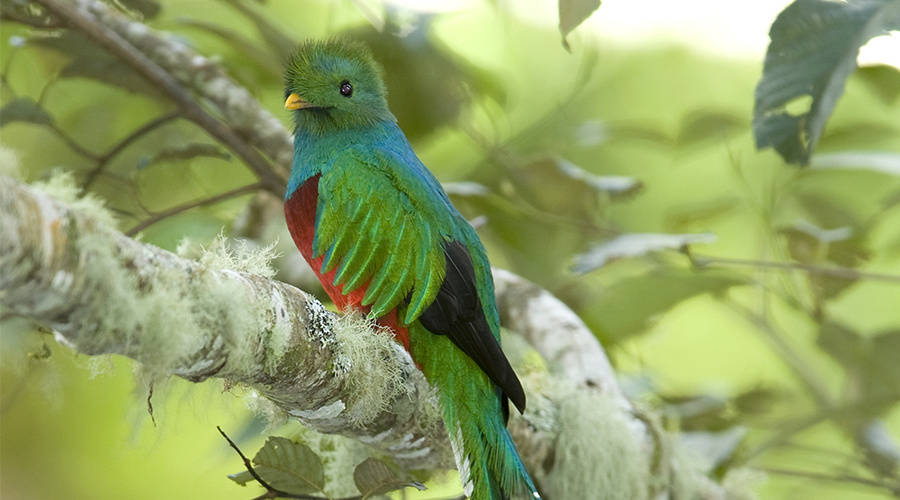
Costa Rica is home to many beautiful things, and our avian friends are no exception. This destination is an absolute paradise for birdwatchers! 600 species call it home year round and another 200 migrate from temperate areas. Even first-time bird spotters will find it easy to see them since they are all resplendent with magnificent colours.
Quetzal
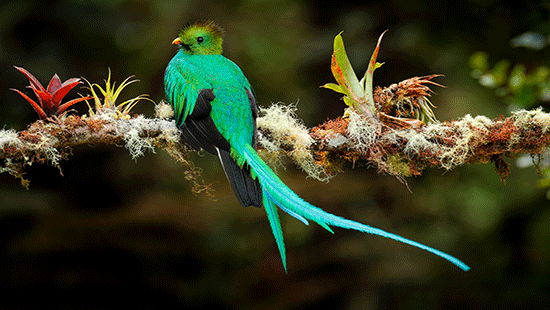
This is one of the prettiest birds on earth! Its name is derived from the Aztec word for beautiful and it’s very clear why. During mating season in March through July, the male grows a magnificent tail that can reach up to half a meter in length! That’s in addition to his regular green body with a red breast and a ridged crest. Throughout history the Quetzal has been revered for its beauty and in Mayan culture it was considered a crime to harm one.
Parrots
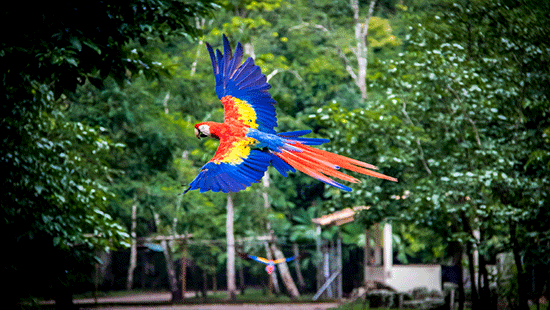
There are more than 350 different species of parrots worldwide. Costa Rica is home to 16 of them that can be found mainly in the lowland forests. The most common parrot in the area is the Great Green, but the vibrant Scarlet Macaw can also be found, especially in Corcovado National Park. Be on the lookout for them flying overhead in pairs as they are lifelong monogamous partners. Set out in the morning and afternoon when the temperature is more comfortable to see them in action.
Hummingbird
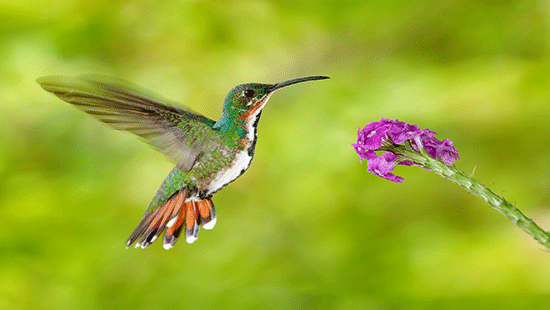
There are 330 species of hummingbirds on earth. Over 50 of them can be found just about anywhere in Costa Rica. Even the most inexperienced bird watcher can spot them easily since they seem to hover instead of fly. Hummingbirds are incredibly important to the environment because they feed almost completely on flower nectar. Hopping from plant to plant helps cross pollinate flowers to keep them blooming.
Toucan
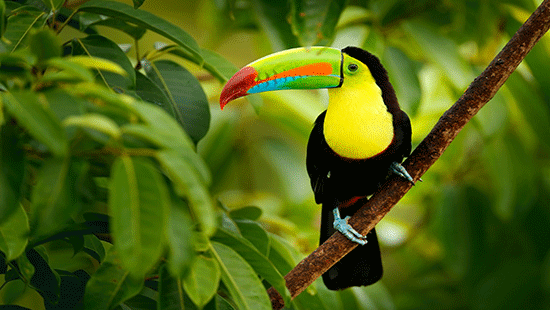
Along with parrots, toucans are also pretty easy to spot in Costa Rica. They have short, compact bodies and short necks with large bills. Their bills are mostly hollow and are used as tools for eating fruit. These birds are essential to the health of the forest as their droppings help spread seeds for new trees to grow.
Grab your binoculars, your camera and your best telephoto lens and hop on a flight to enjoy these spectacular creatures. If you’re not an enthusiast before your trip, you will be when you return!

